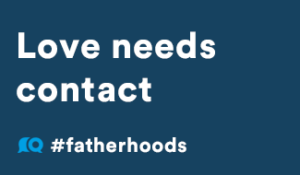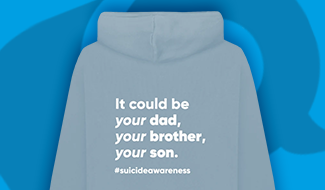There has been a massive reported increase in domestic abuse, and even in serious assaults and homicide, during the Covid-19 Lockdown, and there are fears amongst those of us working in this area, that victims might not know how, or be able, to access the help they need to protect themselves.
There are a number of applications that can be brought through the family court. Non-molestation orders to prevent the perpetrator’s violence, abuse and harassment; Occupation orders to exclude the perpetrator from your home; Prohibited steps orders, to prevent the perpetrator from removing the children from your care without your consent; these are just a few that may be appropriate to consider. The police can also assist with removing the perpetrator from your home; Warnings and Cautions; Protection from harassment orders; Domestic violence protection notices; to name just a few.
There has been a massive reported increase in domestic abuse, and even in serious assaults and homicide, during the Covid-19 Lockdown, and there are fears amongst those of us working in this area, that victims might not know how, or be able, to access the help they need to protect themselves.
We must of course be cautious about safety for victims of domestic abuse and the practical difficulties and danger to their personal safety that seeking legal advice could bring. Lockdown can offer no respite from the perpetrator, who may also be home all day, every day, and avoiding leaving the home adds greater danger for the victims of domestic abuse. That alongside the stress of the situation, including financial worries, undoubtedly puts them in greater danger than normal.
It is important that victims of domestic abuse realise that they are specifically exempt from the Coronavirus Act, and are specifically permitted to leave the home, and stay somewhere safe, if they need to, so they could be encouraged to do that as a first step, and go and stay with a friend or family member, where they can then seek further help and assistance.
Many organisations and businesses have become more aware of this issue, and for instance Boots the Chemist recently made an announcement that anyone alerting one of their pharmacy staff that they needed help, would be taken into a separate room, and offered assistance. GWR announced free travel for victims fleeing their home and traveling to a safe place. The Police Forces up and down the country have also taken a very proactive approach to assisting victims of domestic abuse, and have introduced a way of dialling 55 after dialling 999 which will instantly alert emergency services that there is a domestic abuse emergency that needs dealing with. Many of the ‘at-home’ sales sites (like Body Shop) have alerted their reps to this so that a victim can send a coded message to their usual rep who will then assist them in notifying the police.
But if (and when) you need some legal steps, help is definitely still out there.
Any urgent court applications must be dealt with very carefully. Protective orders can be obtained very quickly and effectively if we all think a little bit creatively and employ the technology that is available to us, for the protection of our clients and victims of domestic abuse.
Victims may have limited ability to contact support services or lawyers for any help and any contact will have to be done in a way that does not put their safety in jeopardy, but the positive message is that legal action can be taken if such orders are necessary.
What legal protection can a victim obtain?
Victims may well wonder whether it is even worth contacting a solicitor to seek advice about protective measures thinking that the courts might be closed. Although it is true that the courts are largely closed to the public, the Judges, lawyers and court staff are still able to work. We are fortunate enough that technology has been implemented by the Courts very quickly to enable hearings to take place. It is also very much the case that over the weeks since Lockdown was introduced, that professionals involved in the family justice system and the Judiciary and Courts, have worked hard on opening up the courts, safely or remotely, to ensure that protection, even in emergencies, is available.
It has certainly been possible to obtain emergency protective orders and although it has required some thinking outside the box, the process is fairly smooth.
Lawyers are able to take instructions over the telephone, from which they can prepare the necessary paperwork, and this can be sent to clients electronically for their approval.
Working from home can also assist the lawyers with the flexibility to speak with a client outside of usual office hours and at times when it is convenient for the client to accommodate their own personal circumstances, so that perhaps they can talk when they are out for their daily exercise, or popping to the shops or chemist. The Legal Aid Agency have relaxed certain requirements, and legal aid can be applied for remotely.
The application can be issued with the Court via email, and the lawyer can then arrange with the Court staff a telephone or video hearing with the Judge.
The lawyer can then hold the hearing over the telephone or via a web platform such as Skype at the allocated time whilst having contact with the client on a separate device so that they are able to understand what was said in Court on their behalf and what the Judge’s decision is. Alternatively client’s attendance can be excused if that would put them in immediate danger due to presence of the perpetrator.
After the hearing, the lawyer drafts the court order and emails it to the Judge who can then approve or amend it in a matter of minutes. A process server, again remotely, can be instructed and provided with the information to make sure that the order could be served on the perpetrator.
It may be a bit more complicated but given the fact that nobody has to travel anywhere, the process can be dealt with more quickly in some cases than pre-Covid-19 times.
Posted on May 17, 2020














